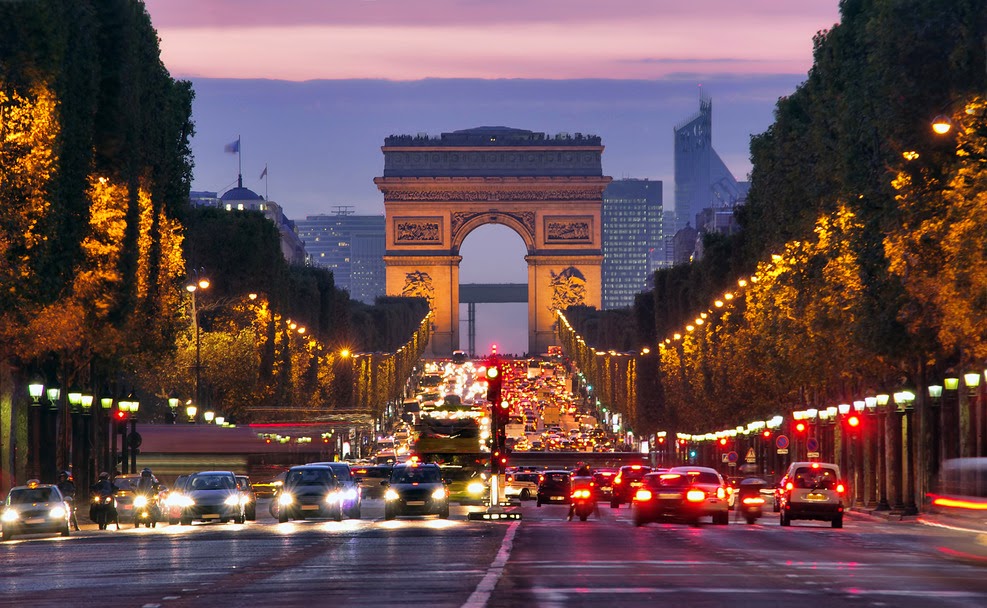On 23 October, member states sealed a deal that commits
the EU two binding targets: (1) To cut carbon emissions by at least 40% at 1990’s level; (2) To drive renewables in its
energy mix up to at least 27%; and a
non-binding target to curb its energy use by at least 27% by 2030. The EU 2030
package is hailed as a ‘good’ step forward, but not yet a ‘great’ step towards
the UN climate negotiations in Paris (COP 21) next year. Amid late night
applause of state leaders at Brussels, French President François Hollande said
the deal would “send a clear message to big polluters such as China and
the United States…to agree on a global legally binding agreement.” His remark
could be a motion of debate.
In the absence of similar restrictions for their
competitors across the Atlantic and the Far East, European corporations, who
are often good friends of politicians, would adamantly back them to exert pressure on major
polluters like the US, China and India (accounting for 47% of global emissions altogether
in 2013) to put forth
early, ambitious, specific and legally binding targets for the Paris
negotiations. Otherwise, after 2015, EU would again have to surrender to
international opposition like the row on introducing EU ETS to the aviation industry
that we saw in late 2012.
But if all EU state leaders really believe that they
are sending a “clear” message to the rest of the world for a heavenly deal next
year, I doubt this is no more than “collective narcissism”. The real impact of
the EU 2030 package on UN climate negotiations is actually uncertain. There are
two main reasons for it.
Firstly, the current emission reduction target is far
from ambitious from both perspectives
of science and equity. A 40% cut by 2030 is just half of
80% required to contain
the global temperature rise to likely within 2°C above pre-industrial level. On
22 October (the day before the EU climate summit), Professor Kevin Anderson, a
climate scientist at the University of Manchester, wrote an open letter to
David Cameron. It summarises in an arithmetic approach why the IPCC’s carbon
budgets oblige the EU to cut its
energy-related emissions by 80% by 2030 and to completely decarbonise its
economy only a few years later on
scientific grounds.
Taking into account the transfer of carbon emissions to
developing countries mainly through migration of manufacturing bases, this
target is unjustifiable as the annual inventory consumption-based emissions per
capita of the EU, standing at 9.3 tonnes, remains much
higher than those of China
(5.8 tonnes) and India (1.8 tonnes) whom the EU wants to persuade to commit
more. “40%” may be seen as the EU prioritising political convenience over
scientific integrity, which would irrevocably ruined the negotiations at COP 21. What Brussels has proposed
also means that future leaders have
to cut CO2 three-fold
within the two decades to 2050! This is next to impossible, according to UN
experts.
Secondly, a 27% renewables target and a 27% non-binding
energy savings target would add to the conflicting message being sent to other
emitters. In the first half of 2014, Germany has already achieved a record of
over 31% of its electricity generated by renewables through local sources. Some
Scandinavian countries are already well-placed
to commit themselves to 100% renewables by 2050. So, if this renewables target
is binding at the EU level only, it is unambitious. As regards energy savings,
it is neither ambitious as energy use
has already dwindled with the austerity measures introduced since the Eurozone crisis
and shifting of energy-intensive industries
to developing countries.
An unambitious target plus another non-binding target sounds meaningless to the development of clean energy and
energy efficiency technologies in Europe, where many governments can’t resist
the temptation of shale gas and nuclear to meet demand in anticipation of
Russian gas cut-off. The EU may risk signalling the others that its renewables policy
is being dropped.
Given the EU has always been the most enthusiastic
climate negotiator, the current offer could probably
become the greatest possible,
rather than the bare minimum,
of international action in 2015 if there was no upward revision after COP 20 in
Lima this year. In this EU agreement, a special “flexibility clause” enabling
the European Council to revise the targets after the 2015 summit has already
led to speculation that the global deal to be forged would feature a binding
target below 40%. This could lend
other key emitters an additional,
handy
excuse during the Paris negotiations and, in turn, undo the already meagre
incentives which the EU has given to investors.
Most
of the international negotiations
alike,
the negotiation process of the EU 2030 package is a stage for state actors. At
COP 19 in Warsaw last year and the UN climate week in New York this September, state
leaders should be enlightened by non-state actors (including 1,000 businesses
and investors that represent over half of global emissions) who announced a
series of concrete emission-cutting measures, which state actors have not
managed to produce despite 20+ years of negotiations. In 2015, a successful
post-Kyoto climate agreement will need to count on non-state actors. It is
therefore not too late for Brussels to get
the job done with the joint
efforts from a network of non-state actors, and to involve businesses and citizens in coming up with a more serious offer for the Paris conference!
My commentary is also published at the CommentVisions on 12 November 2014.

No comments:
Post a Comment